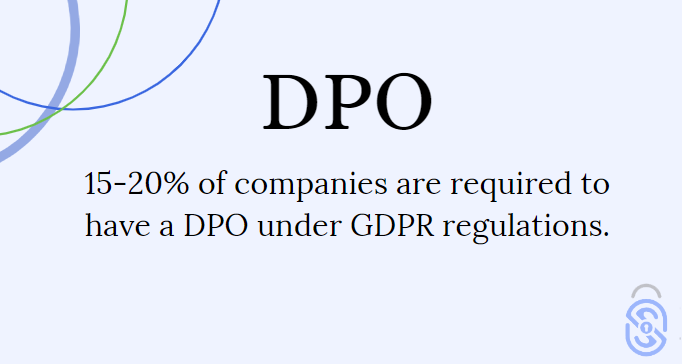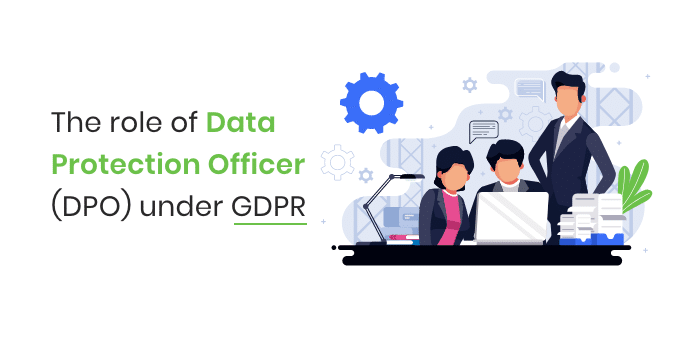General Data Protection Regulation (GDPR) is a privacy protection law that has far-reaching implications. And at the root of it all are the significant structural changes that an organization has to undertake in order to be compliant with the GDPR. Data protection officer is someone who is responsible for data protection.
The compliance cost is huge, and no one wants to be on the wrong side of GDPR.
“Appointing a Data Protection Officer (DPO) happens to be one such requirement. However, it is not an entirely fresh concept. Many organisations already have such a role in place either as a mandatory requirement in their country or to set the industry benchmark. But, for the first time, outsourcing a DPO has become a compulsory requirement for such a large pool of organisations.”
Under GDPR, is it compulsory for every organisation to hire a data protection officer? What is their role and responsibility? Who do they report to?
Many such questions are still lingering in the minds of the executives who have been entrusted with the task of making their respective organizations GDPR compliant. Everything one needs to know about a DPO is present here.
Who is a Data Protection Officer (DPO)?
A DPO is responsible for helping an organisation to ensure compliance with GDPR. The primary responsibility of the DPO is to make sure that a proper GDPR strategy including policies, processes and procedures are in place across an organisation. Another way to look at their responsibility is to supervise the smooth implementation of GDPR compliance measures within an organisation. It is an executive-level position within an organisation under the legal, compliance, data management or security function.
Does every company need a DPO (Data protection officer)?

To hire a Data Protection Officer (DPO) is essential when an organisation falls into one of the following categories:
- Public authority:
If a public authority is processing the user data, then they have to appoint a Data Protection Officer (DPO).
- Core data processor and controllers:
Organisations that carry out ‘regular and systematic processing’ of data as their core activity must also fulfil this mandatory requirement.
For data processing to be considered a core activity, it should be critical to the operations and goals of the organisation. For instance, IT and HR management are support functions and not the core activities of an organisation.
Then, there is the term ‘regular and systematic’ which means at regular intervals. As per a pre-determined arrangement, monitoring of data subjects, profiling them, and so on.
Although, it is irrelevant whether the collection and systematic monitoring of data are taking place online or offline. Once the data is collected and is being processed, it comes under the domain of the GDPR.
- Large-scale data processor and controllers:
Organisations that process data of data subjects on a large-scale also have to appoint a Data Protection Officer (DPO) as a mandatory requirement. Again, article 29 working party states that to be considered a large-scale processor, it is not just the volume of the data that is being processed is under consideration. Multiple other factors must be taken into account. These factors include:
- Number of data subjects
- A volume of data process
- Data processing duration
- Geographical coverage of data
Processing sensitive data:
Another set of organizations that fall under the domain of GDPR are those who are data controllers and processors of sensitive data on a large scale. The sensitive data can include data related to children, health-related information, criminal convictions, and so on. If an organisation falls under the above categories, then it would be crucial for it to appoint a DPO. An organisation can also voluntarily appoint a DPO
Appointment, responsibilities, and liabilities of a DPO
Once the organisation has ascertained, it must appoint a DPO. To understand the roles and responsibilities of a DPO under GDPR is the next step now.
✓ The Appointment
A DPO should be appointed on the bases of professional competence and more importantly, the knowledge of data protection and privacy landscape. The knowledge of the DPO should be a function of the nature of the data processing operations and the degree of protection required.
Having a complete understanding of the data processing operations of the organisation is a must for a DPO and also he should have expert knowledge of data protection laws of the country as well as GDPR. A Data Protection Officer (DPO) can be internal as well as external.
✓ The Responsibilities
A Data Protection Officer (DPO) should be involved in every issue related to data protection law and practices from the beginning since it is their responsibility to ensure compliance with GDPR.
They have to create processes and oversee the security of the data and to conduct periodic data protection impact assessments. Since the primary role of a DPO is to monitor an organization’s compliance with GDPR.
✓ The Liability
It is critical that organizations have complete clarity over who is held liable in the case of non-compliance.
If there is a breach of the regulation, it is still the data controller and processor that will be held liable. Of course, it is the organisation’s call to determine if they want to appoint another DPO, but that’s an entirely different matter altogether.
The data protection officer is in charge of the implementation of data protection policies and assurance of data policy management.
Data protection officers may have many responsibilities within the firm. This person is in charge and held accountable for the provision of the right actions to supplement compliance with the GDPR and the data protection law within the EU.
“The DPO must overlook the reporting and management of a breach. They must work towards creating and following the best practices and benchmarks for privacy assurance. They may overlook processes in order to curb the possibilities of any breaches to occur.”
The DPO must communicate with relevant parties in order to comply with the data protection law. They may help answer any data subject access requests if they arise. Any person looking to request subject access may connect to a DPO for help.
“A good DPO manages the policy in order to comply with GDPR. They also help in creating awareness to help with the smooth application process. Compliance is an ongoing effort, never a one-off thing.”
A DPO may be part of:
- Your own organisation
- outside of the organisation
- work on a full-time basis
- Or work on a part-time basis
The way forward
An organisation has to know whether they have to appoint a DPO under GDPR mandatorily or not. If they do not have to, they can still create a position.
However, they should know that even if they choose to appoint a DPO by choice, they will have to abide by the same set of rules as an organisation for whom appointing a DPO is essential.
“Given the hefty amounts of fines amounting up to €20 million or 4% of the global turnover (whichever is higher), appointing a Data Protection Officer (DPO) is a smart decision on the part of an organisation.”
They must have a dedicated professional looking after GDPR compliance and raising a red flag whenever there is an infringement or any potential of it. A DPO appointment also works well in favour of the organisation, if there is a breach.

Conclusion
It is already common knowledge that the regulatory authorities take infringement cases on an individual basis.
So, if the organisation does find itself a victim of a breach, an active DPO is an indication that the organisation took all the steps to ensure the security of the data and its processing. This way, they can save themselves the heavy cost of fines and penalties.
A DPO has a significant role to play in making the whole GDPR regime a success. With a DPO in place, organizations will find it easier to comply with GDPR, and they can do business as usual, without worrying about flouting the laws all the time. They know that the DPO is overseeing compliance measures within their organisation.
What’s your opinion on this new GDPR compliance requirement? Is it only a cost or a valuable addition to an organisation?

